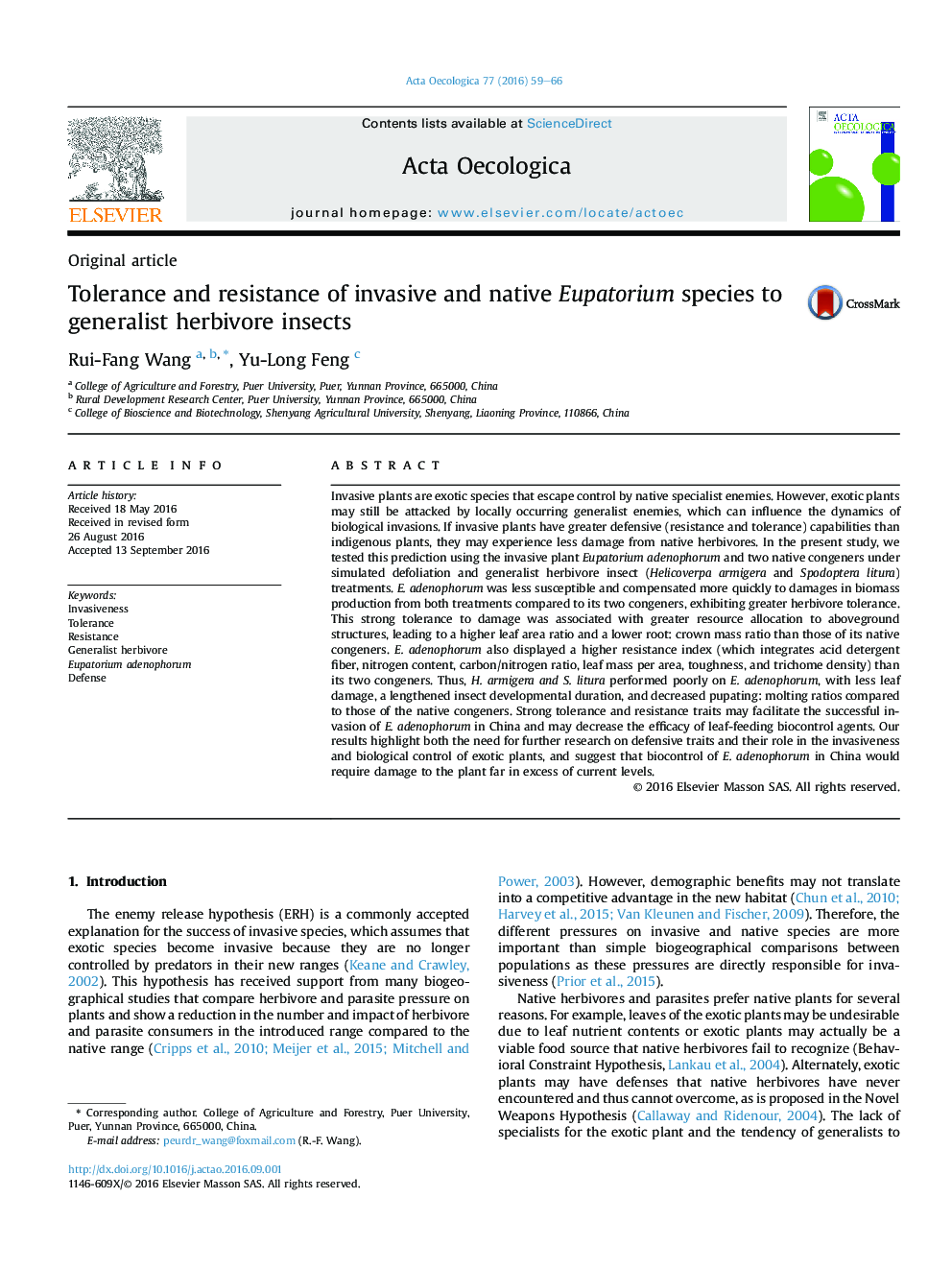| Article ID | Journal | Published Year | Pages | File Type |
|---|---|---|---|---|
| 4380597 | Acta Oecologica | 2016 | 8 Pages |
•We studied defensive traits of invasive and native Eupatorium plants.•Simulated herbivore treatments were conducted to test tolerance.•Generalists performance and leaf traits were analyzed to test resistance.•Invader displayed a higher tolerance and resistance than its two congeners.•Biocontrol of E. adenophorum in China could not be succeed under current damage levels.
Invasive plants are exotic species that escape control by native specialist enemies. However, exotic plants may still be attacked by locally occurring generalist enemies, which can influence the dynamics of biological invasions. If invasive plants have greater defensive (resistance and tolerance) capabilities than indigenous plants, they may experience less damage from native herbivores. In the present study, we tested this prediction using the invasive plant Eupatorium adenophorum and two native congeners under simulated defoliation and generalist herbivore insect (Helicoverpa armigera and Spodoptera litura) treatments. E. adenophorum was less susceptible and compensated more quickly to damages in biomass production from both treatments compared to its two congeners, exhibiting greater herbivore tolerance. This strong tolerance to damage was associated with greater resource allocation to aboveground structures, leading to a higher leaf area ratio and a lower root: crown mass ratio than those of its native congeners. E. adenophorum also displayed a higher resistance index (which integrates acid detergent fiber, nitrogen content, carbon/nitrogen ratio, leaf mass per area, toughness, and trichome density) than its two congeners. Thus, H. armigera and S. litura performed poorly on E. adenophorum, with less leaf damage, a lengthened insect developmental duration, and decreased pupating: molting ratios compared to those of the native congeners. Strong tolerance and resistance traits may facilitate the successful invasion of E. adenophorum in China and may decrease the efficacy of leaf-feeding biocontrol agents. Our results highlight both the need for further research on defensive traits and their role in the invasiveness and biological control of exotic plants, and suggest that biocontrol of E. adenophorum in China would require damage to the plant far in excess of current levels.
